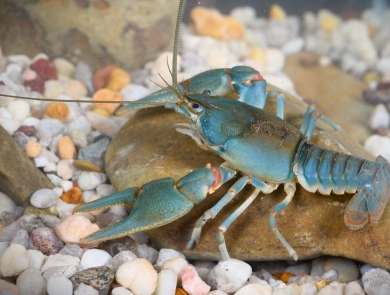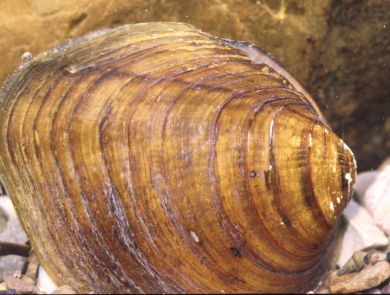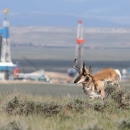Our office helps to recover threatened and endangered species, enforces federal fish, wildlife, and plant laws and regulations, partners with private landowners to restore natural habitats, and ensures that wildlife resources are considered by agencies during the planning and operating of wind, coal, hydropower, oil and gas, and road projects.
About Us
Our Ecological Services office is comprised of talented staff working on a variety of different project types with the goals of protecting and conserving West Virginia's unique fish and wildlife resources. We work closely with individual landowners as well as local, state, and other federal organizations to reach these goals.
What We Do
The West Virginia Field Office is responsible for conserving federally listed threatened and endangered species that occur in the State of West Virginia. We work with our partners in federal and state agencies, tribes, local governments, the business community, and private citizens to help protect important habitat. We help increase species' populations and reduce the threats to their survival so that they can be removed from federal protection.
We provide guidance and expertise, administering the Endangered Species Act, and the Fish and Wildlife Conservation Act. We also conduct work and collaborate with other agencies on Natural Resource Damage Assessment projects, Federal Energy Regulatory Commission projects, and Partners for Fish and Wildlife Program habitat restoration on private lands. When assisting with project reviews, our goal is to avoid and minimize impacts to listed species.
When we protect species and habitats, we conserve the natural resources on which we all depend. Wild things and wild places are part of our shared inheritance. They are part of the natural foundation of the lands we call home.
Our Organization
As a field office within the National Ecological Services Program, we are responsible for reviews of projects, endangered species planning and recovery efforts, environmental contaminants research and remediation, and a variety of conservation partnerships and grants. The West Virginia Partners for Fish and Wildlife Program provides technical and financial assistance to landowners interested in restoring and enhancing wildlife habitat on their lands.
Below are the national program pages for programs conducted by our office - for West Virginia specific information on these programs (and others), please visit the "More About What We Do" section, above.
Our Species
The Endangered Species Act defines an endangered species as any species that is in danger of extinction throughout all or a significant portion of its range. A threatened species is any species that is likely to become an endangered species within the foreseeable future throughout all or a significant portion of its range.
The West Virginia Field Office works with a diverse assemblage of threatened and endangered species, ranging from species only occurring within the state, such as the Cheat Mountain salamander and diamond darter, to wide-ranging species such as the Indiana bat and snuffbox mussel.








